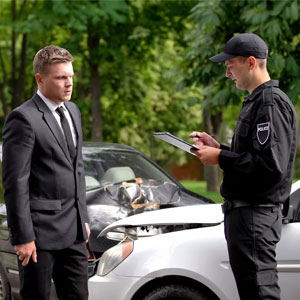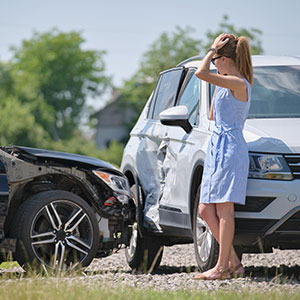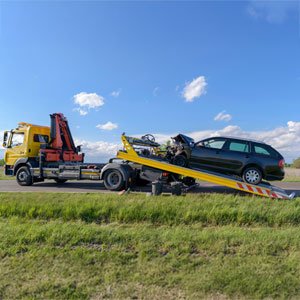Suing For Accidents Caused By Pizza Delivery Drivers In Florida
Car AccidentsIf you need to sue for a car accident caused by a pizza delivery driver (i.e. Dominos, Pizza Hut, Papa John’s, Hungry Howies, etc.), then you will likely face multiple legal challenges for which there are no easy answers.
Employee v. Independent Contractor-An Issue Of Fact For The Jury
When a pizza delivery driver hits your car, the first issue you will likely face is that the pizza chain will say that they have no legal liability for the accident caused by their driver and that you should obtain any payments or settlements from the driver’s personal automobile insurance coverage. The problem with this is that you cannot expect most pizza delivery driver’s to have much insurance to cover your accident.
These pizza chains will argue that they have no control over their drivers while they are delivering pizzas with their own cars and that they cannot be held responsible. The case to know regarding this issue is Parker v. Domino’s Pizza, Inc., 629 So. 2d 1026 (Fla. 4th DCA 1993). In the Parker case, the people injured in the accident sued the delivery driver, Domino’s Pizza (the national chain), and the local franchise.
They alleged that the driver “while within the course and scope of his employment delivering pizza for [the local franchise], operated a vehicle in a reckless, negligent and careless manner, causing it to strike another vehicle.” The plaintiff’s complaint also alleged that the local franchise was the agent, apparent agent, servant and/or employee of Domino’s and that Domino’s exercised control over all of the activities of the local franchise and was, therefore, vicariously liability for the local franchise and the delivery driver for negligence.
Putting aside the ambiguities surrounding a franchise relationship, here is what the court said about whether a driver is an employee or an independent contractor:
- the status of employee is not controlled by descriptive labels used by the parties but is instead determined by the “nature and extent” of control
- “whether one party is a mere agent rather than an independent contractor is to be determined by measuring the right to control and not by considering only the actual control exercised…”
- “if the employer’s right to control the activities of an employee extends to the manner in which a task is to be performed, then the employee is not an independent contractor.”
- “where the employee is merely subject to the control or direction of the employer as to the result to be procured, he is an independent contractor.”
- “if the employee is subject to the control of the employer as to the means to be used, then he is not an independent contractor.”
That is about as clear as mud-I know. The result of this case is that you really can’t determine employment relationships as a matter of law. Instead, the debate about whether a driver is an employee or an independent contractor (for which there is no legal liability) is a question for the jury to resolve.
What Happened In Newer Cases Involving Florida Pizza Delivery Accidents?
In 2013, Choy v. Faraldo, 120 So. 3d 92 (Fla. 4th DCA 2013) was decided. While the case was ultimately reversed due to the improper arguments made in closing by an attorney, the jury found the pizza delivery driver was 100% at fault for the accident and that the driver was not in the course and scope of employment with the pizzeria when the accident happened. Ouch.
In this case, Faraldo sued Choy alleging that Choy negligently caused a car accident and that his employer was vicariously liable for that accident because Choy was acting within the scope of his employment as a pizza delivery driver at the time of the accident. Choy denied liability for the accident and his employer denied that Choy was acting within the scope of employment at the time of the accident (no specific basis was stated as to why).
I cannot explain why the jury didn’t find that the pizza delivery driver was in the course and scope of employment. Perhaps the jurors were unsympathetic to the plaintiff or perhaps they really believed that the delivery driver was an independent contractor rather than an employee. I have to say that I would feel differently on that issue in a case involving a pizza delivery driver unless there is evidence to suggest that the driver was way outside of doing what he was supposed to be doing. This brings us to the next point of discussion.
Frolic
In Florida, it is well settled law that an employer is only responsible for the negligence of an employee while serving his master. When an employee goes outside of what he or she has been directed to do by the employer and instead uses the opportunity to do something for themselves (as opposed to benefiting the employer), then the employer is considered to be on a “frolic” for which the employer bears no legal responsibility. Interestingly enough, the employer’s liability resumes when the frolic ends and returns to serving the employer.
This means that if a pizza delivery driver alters their course in order to stop at home or see a friend while delivering a pizza, then the employer ceases to be legally responsible until the employee gets back on the established delivery route. It can be unclear when this might occur and will likely be a question for the jury to resolve.
Suing The Local Franchise Is Not Enough
Now, onto the most important part of this post, the ability to collect a judgment is the most important aspect of a pizza delivery accident case for obvious reasons. The drivers often have very little insurance coverage and the cases brought by plaintiffs often involve serious injuries or death. If you don’t have a deep pocket to collect from, then you might win the battle but lose the war.
So, if you are involved in an accident with a pizza delivery driver, can you collect from the national pizza chain? All of the national pizza chains have a lot of income and insurance to pay judgments. The question is whether you can get to it in order to collect.
Step one is to sue the driver, the local franchise, and the national pizza chain. This was discussed above.
Step two is that you have to win the employee vs. independent contractor issue of the driver and you also have to win agency between the local franchise and the national pizza. To do this, a jury has to find that the national pizza chain had enough “control” over the local franchise (including the way that pizzas are delivered by drivers) in order to make that happen.
Harkening back to Parker v. Domino’s Pizza, Inc., the franchise agreement was very extensive and included specific procedures for mandatory training of employees and “standards for delivery.” A sincere jury should be able to find that a local pizza franchise cannot do whatever it wants and that there is in fact an agency relationship. After all, franchising is really just a creative form of ownership where the national chain provides the product, brand recognition, and know-how to the local store owners who provide the real estate, the employees/labor to get the job done. Local franchises are really not independent contractors except for the allure of trying to limit liability.
Franchise Insurance Exclusion For Automobiles
With that being said, it is well settled law that auto accidents are excluded from coverage under most business’s “general liability policy” or CGL (commercial general liability). Unless the franchise owns vehicles and carries their own insurance on them, the only insurance in a pizza delivery case will be the driver’s own automobile policy (unless you can establish an ‘agency relationship’ with the national chain).
In 2001, American Surety & Casualty Company v. Lake Jackson Pizza, Inc. d/b/a Hungry Howie’s, 288 So. 2d 1096 (Fla. 1st DCA 2001) was decided and found that the local pizza business’s general liability policy excluded coverage for automobile accidents by delivery drivers. This placed the local franchise’s assets on the line (in the event of a finding that the driver was an employee) and likely took away a substantial amount of insurance on the case for the injured person (usually CGL’s are $1,000,000).
What Should An Injured Person Do?
If you have a case involving a serious personal injury or death arising from a car accident with a pizza delivery driver, you are going to need a personal injury attorney to take on your case. The legal and factual issues of these cases get complex and the answers to questions of liability will not likely be clear cut. Instead, these cases are often a game of risk with the national pizza chains to get to the money. To get legal help for your case, you should contact a car accident attorney for help. We are located in Lakeland, Florida and serve Central Florida residents. Contact us today for your free case consultation.


